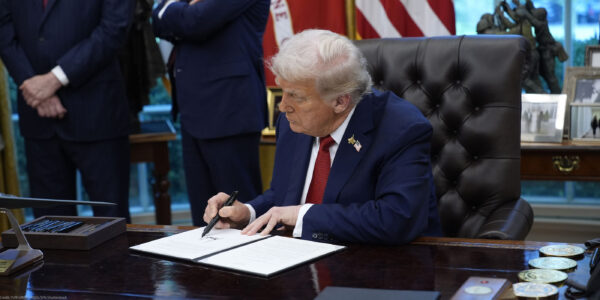
What law threatens the Occupy movement’s and other activists’ right to protest?
What bill recently passed by the House did the President threaten to veto because of its privacy problems?
Which court heard arguments this week regarding Arizona’s anti-immigrant bill, S.B. 1070?
In which state does U.S. citizen and ACLU plaintiff Jim Shee carry his passport at all times because the color of his skin makes him look suspicious?
In which state would a bill fuel the bullying of LGBT students?
Ready to Occupy? What You Need to Know about H.R. 347, the "Criminalizing Protest" Law
Spring has sprung, the grass is riz . . . and the Occupy movement is about to ramp up again. Activists recently announced a general strike for May 1, and protests are expected at the NATO summit on May 20 in Chicago. Later, of course, we can expect demonstrations in connection with the Republican National Convention in Tampa in late August and the Democratic National Convention in Charlotte in early September. In anticipation of these protests, here’s what demonstrators should know about H.R. 347, the "Federal Restricted Buildings and Grounds Improvement Act of 2011."
House of Representatives Passes Privacy-Busting CISPA
The House of Representatives just last night passed the Cyber Intelligence Sharing and Protection Act (CISPA), a dangerously overbroad bill that would allow companies to share our private and sensitive information with the government without a warrant and proper oversight. CISPA gives companies the authority to share that information with the National Security Agency or other elements of the Department of Defense, which could keep it forever. The Obama administration issued a veto threat on CISPA earlier this week.
Report from the Supreme Court: Arizona v. United States
This week the Supreme Court heard arguments in one of the big cases of the term, Arizona v. United States. Several justices, including Justice Stephen Breyer, expressed serious concerns about the law's impact on civil liberties, as they recognized that it might lead to prolonged detention while an officer investigates a person’s immigration status.
S.B. 1070: "I Look Suspicious"
Jim Shee is a plaintiff in case brought by the ACLU and a coalition of civil rights groups challenging S.B. 1070, Arizona’s notorious immigration law. Shee is an American citizen of Chinese and Spanish descent and a lifelong Arizona resident. Before the law passed, he was stopped twice in 10 days by police and asked to show his “papers.” He now carries his passport with him at all times in case he is again pulled over and required to prove his right to be in his own country and city. Here is his story.
Just Say "No" to "Don't Say Gay"
For a while, it looked as if Tennessee legislators had come to their senses and backed off the bill popularly known as "Don't Say Gay." The law, which would restrict discussion of LGBT issues, would send a clear message to students that it's not okay to be lesbian, gay, bisexual, or transgender. That message fuels bullying and can magnify the feelings of isolation and shame that drive all too many LGBT youth to self-destruction and suicide. The bill could also stop teachers from responding to anti-LGBT bullying or harassment; the vague language makes it unclear when standing up for students would mean breaking the law. Unfortunately, the bill is now roaring forward again, but there may still be a chance to stop it.
This is your week in civil liberties. Let us know if this is useful or if you'd like to see changes. Share your thoughts: ideas@aclu.org
Learn more about your rights: Sign up for breaking news alerts, follow us on Twitter, and like us on Facebook.


